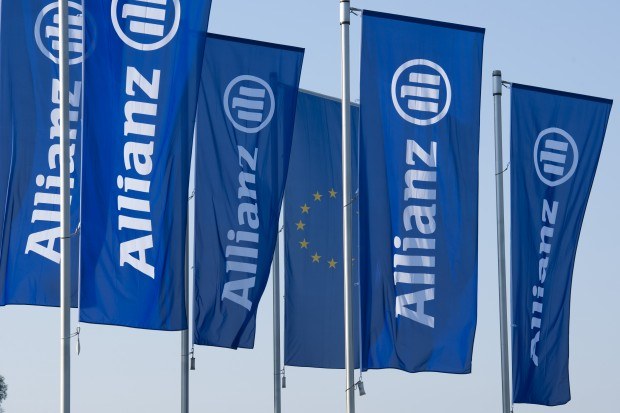When Bill Gross eventually retires as chief investment officer of California-based asset manager Pimco, his “Bond King” crown will go with him.
Allianz, the German insurer which owns Pimco, wants to ensure that in a post-Gross era the asset manager he co-founded will not be so reliant on the investment decisions of one person.
Jay Ralph, the Allianz board member with responsibility for Pimco, told Reuters a new management structure introduced earlier this year, which saw six executives appointed as deputies to Gross, signaled the way forward.
“Pimco is now better positioned with a broader investment leadership composed of Bill as CIO and six well-respected deputy CIOs,” Ralph said in a telephone interview.
“Pimco isn’t only Bill Gross.”
Pimco set up a structure of six deputy chief investment officers to back up Gross, 70, after the departure of his former heir-apparent Mohamed El-Erian, who had shared the co-chief investment officer title with him.
Even before El-Erian’s departure earlier this year following a clash with Gross, Pimco’s performance had become an issue.
Investors have been withdrawing money from Gross’s flagship Total Return Fund, the world’s largest bond fund and the biggest fund in the Pimco family, partly due to a weakening performance and partly to position themselves for an eventual rise in interest rates in the United States.
The Total Return Fund posted its 14th straight month of investor withdrawals in June, despite an improving performance.
Ralph, an American who joined the management board at Allianz in 2010 and took over responsibility for asset management in 2012, says Gross is under no pressure from Allianz to step down.
“In any period of time, managers over- and under-perform. The only exception is that Bill Gross has outperformed more than anybody else,” he said. “We want Bill Gross to work as CIO for as long as he is willing and able to do so.”
Ralph said he was confident about the future performance of the Total Return Fund, which has suffered $64 billion in outflows since May 2013 and currently has $225 billion in assets.
“We’re seeing a tapering in outflows since the peak in Q4 2013,” he said.
PROFIT GOALS
Historically, Pimco’s success has worked wonders for Allianz which bought the unit for $3.3 billion in 2000 propelling it into the ranks of the world’s top investors.
In the past decade alone, Allianz’s asset management division, which is dominated by Pimco, has seen its contribution to the German group’s operating profit climb almost fourfold to 3.2 billion euros ($4.3 billion), representing a third of total core earnings. Allianz now sells nearly two thirds of its investment products to North American clients.
Allianz aims to post an operating profit of 2.5 billion to 2.9 billion euros for its asset management arm, which includes the much smaller unit Allianz Global Investors (AGI) — less than the 3.2 billion in operating profit posted in 2013.
“We’re on track to deliver our profit goals,” said Ralph.
But some of Allianz’s biggest stock owners remain wary, saying it will take several years for Pimco build up its equity funds to compensate for a shift out of bonds.
“In three to five years, I expect the division to contribute three to four billion euros in profit,” one of Allianz’s top 15 investors told Reuters under the condition of anonymity.
Until that point, however, the division’s contribution to the group bottom line may swing between 2 billion to 3 billion euros, said the investor.
However Allianz asset management reaches its profit goals, it’s unlikely to be in the form of acquisitions, Ralph said.
“There’s no need to make a large acquisition,” he said. “If there were a reason to look at non-organic growth, then it would be to add investment capabilities in new areas or acquire operations in geographies where we are not present today.” ($1 = 0.7429 Euros) (Writing by Carmel Crimmins; editing by Arno Schuetze and Keiron Henderson)





















 Why Claims AI Build vs. Buy Decisions So Often Miss the Mark
Why Claims AI Build vs. Buy Decisions So Often Miss the Mark  Machine Learning for Mutuals: What’s Working, What’s Not, and What’s Next
Machine Learning for Mutuals: What’s Working, What’s Not, and What’s Next  State Farm Inked $1.5B Underwriting Profit for 2025; HO Loss Persists
State Farm Inked $1.5B Underwriting Profit for 2025; HO Loss Persists  Viewpoint: Runoff Specialists Have Evolved Into Key Strategic Partners for Insurers
Viewpoint: Runoff Specialists Have Evolved Into Key Strategic Partners for Insurers 



